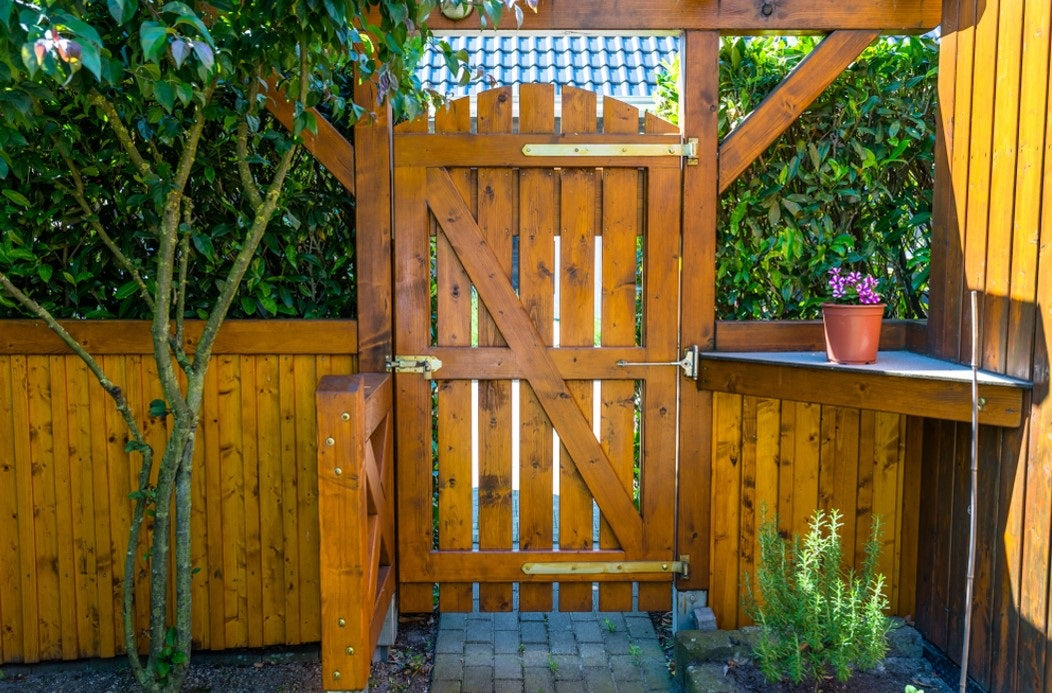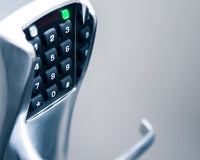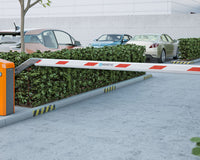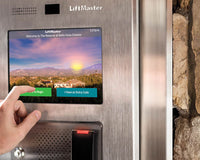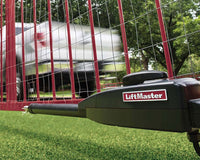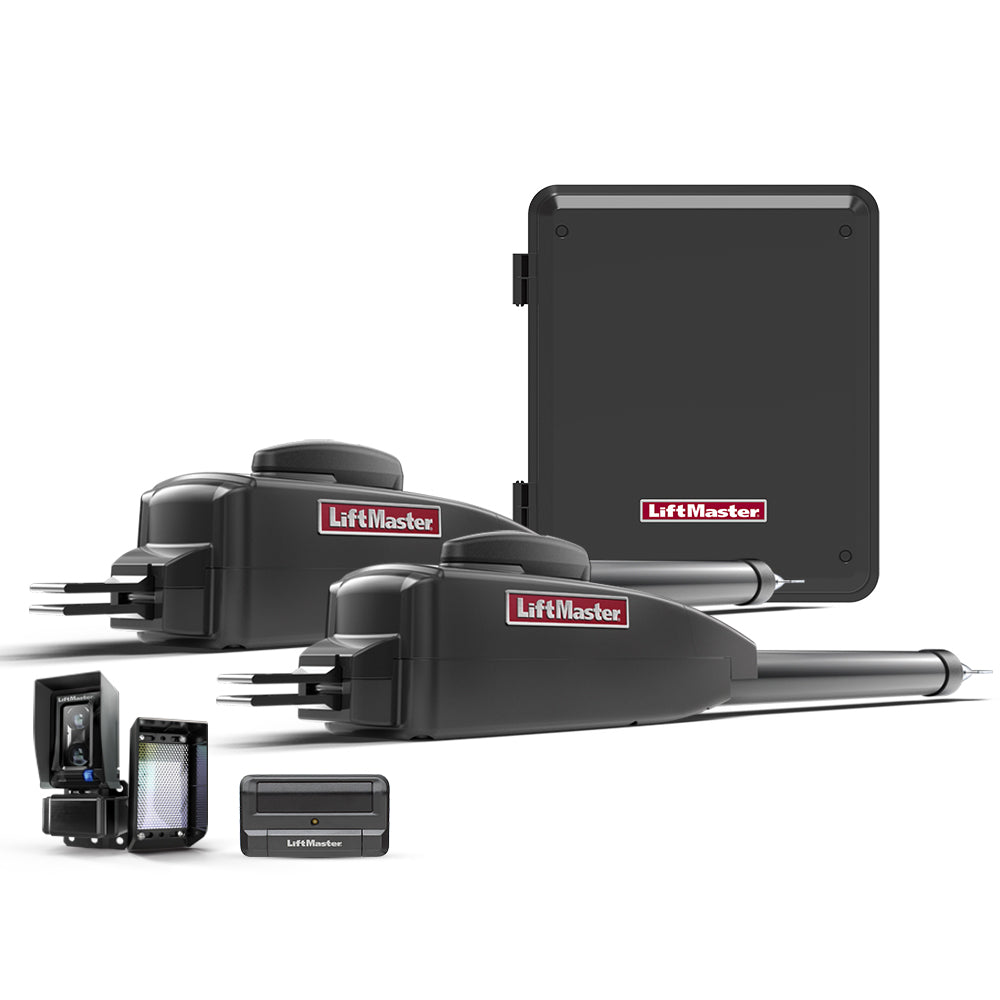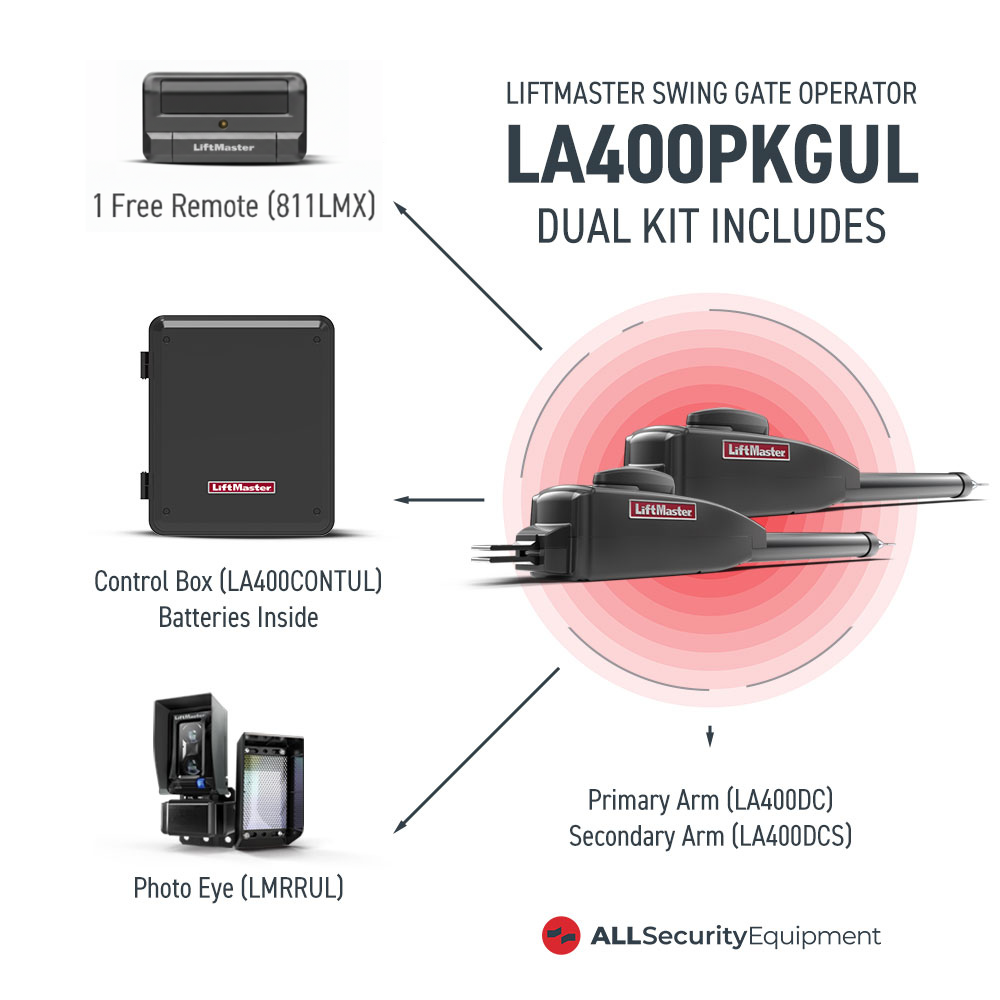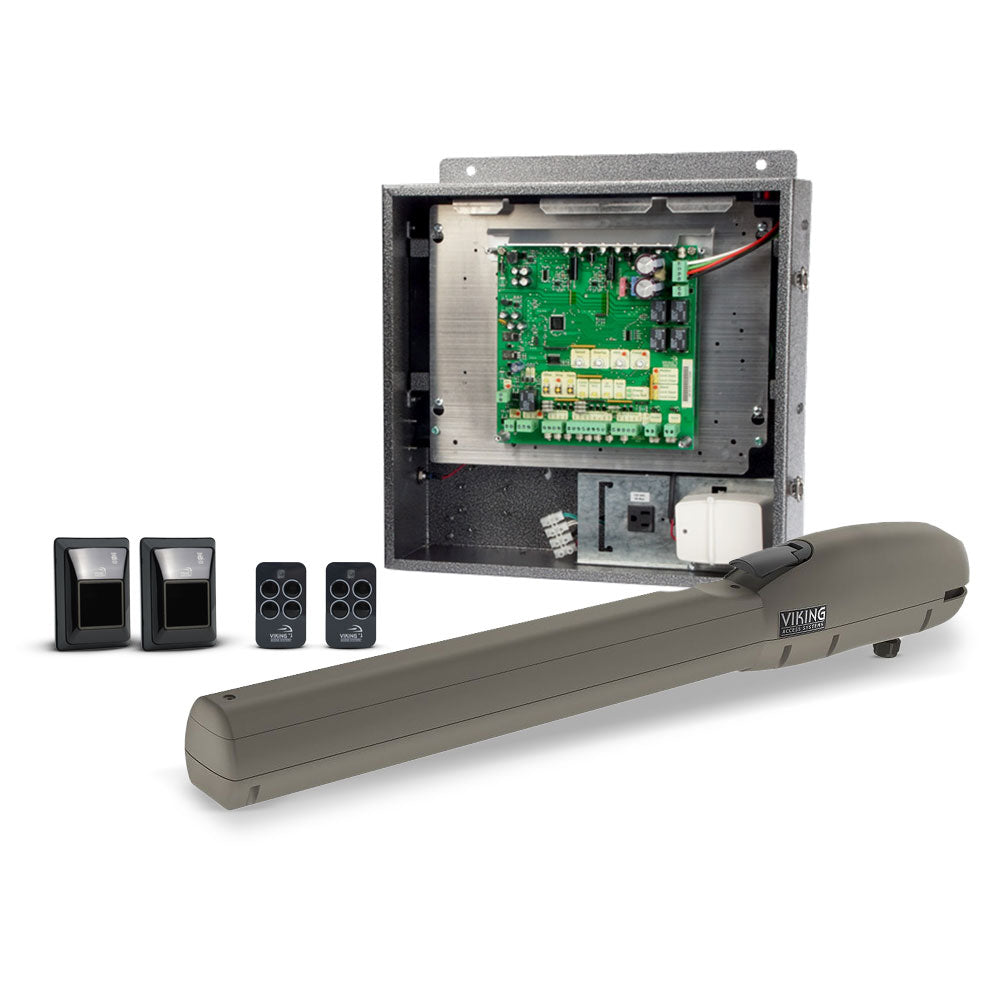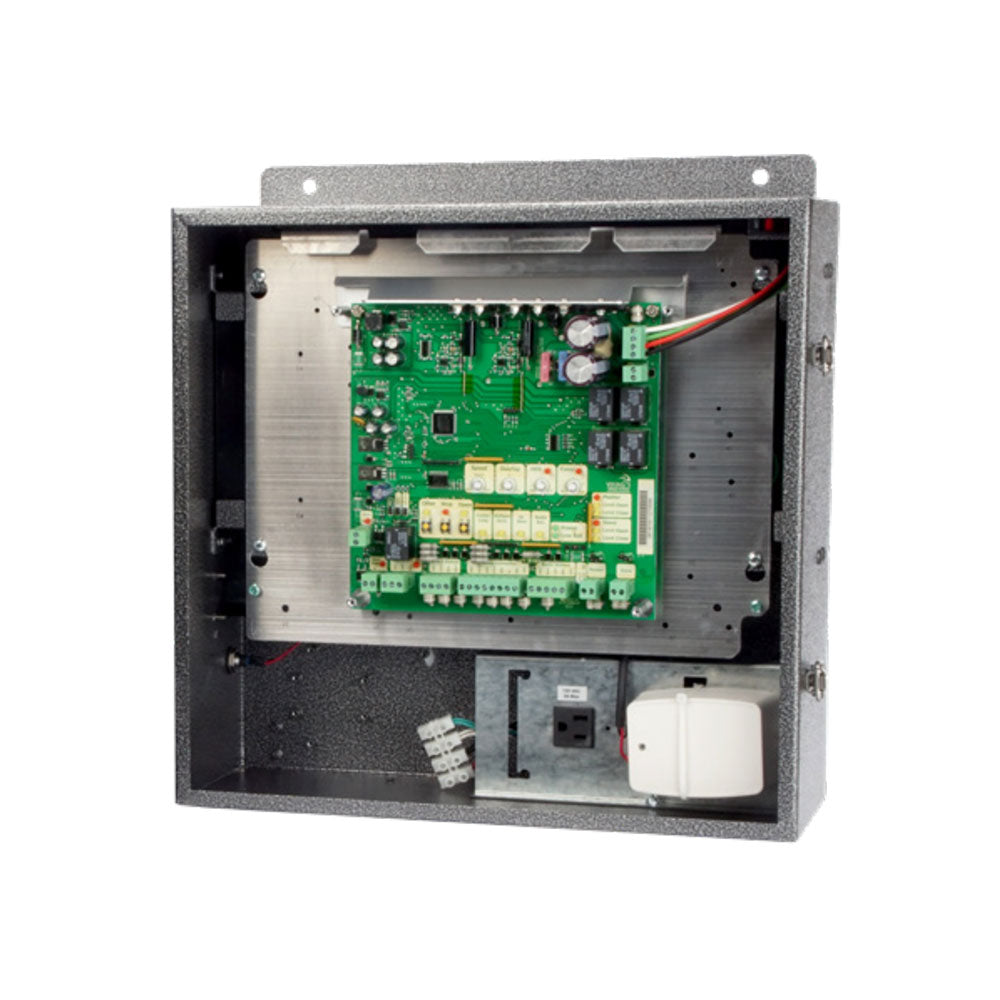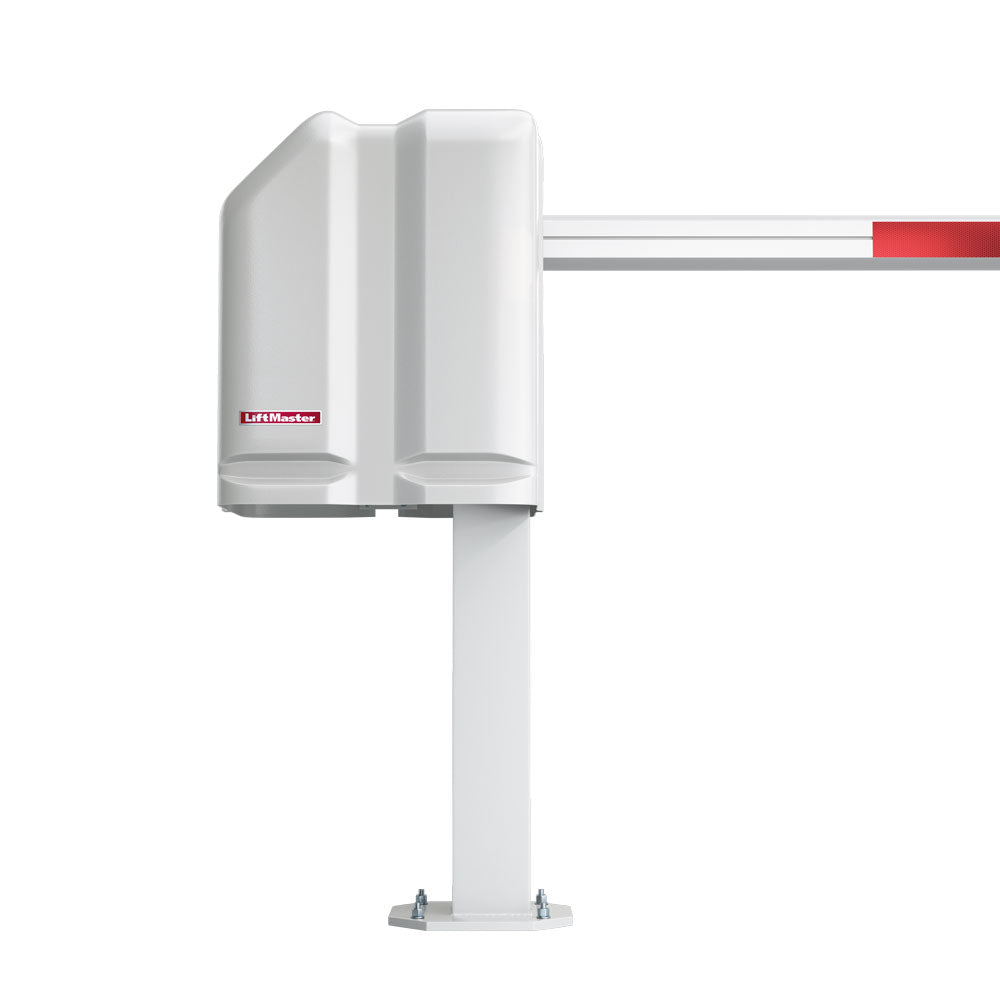It doesn’t matter how open your home is or if you entertain guests every weekend, that doesn’t mean that your door has to be always open, particularly if you have the right gate latch types.
Whether for the main gate that provides access to your property, or the yard gate, a gate latch is extremely important in limiting access to unwanted guests while ensuring your family and home are secured.
That being said, what type of gate latch is best for your property? The gate latches highlighted in this article are some of the more common options. You will also discover the type of door hardware these latches accompany.
Ring Gate Latches
Ring latches are a wonderful double-sided option when considering gate latches to protect your home. Typically, a ring gate latch will have a back plate on both sides of the gate with a ring on each to help you maneuver the latch.
The ring found on the inside of the gate frame, however, is attached to a latch arm. Once the ring is turned from either side of the gate, the arm is lifted from the socket to unlock the gate.
This form of gate latch can be installed in out-swinging and in-swinging gates. Nevertheless, the latch arm must be installed on the side of the gate frame that swings open.
Lever Gate Latches
A lever gate latch functions just like a ring latch with one difference: the lever handle is turned instead of a ring latch. This type of gate hardware is extremely common and is typically seen around office buildings and homes. While a lever gate latch can be lockable, that isn’t always the case.
As with ring latches, you can install a lever latch on both in-swinging and out-swinging gates. The most important thing to remember during installation is that the latch arm needs to be installed on the gate frame side that swings open.
Bolt Gate Latches
When most people hear the term latch, they generally consider a bolt gate latch. Bolt gate latches are some of the most prevalent latch types in the world. These locks are generally found in old building gates and constructions.
Unlike other gate latches on this list, bolt latches are not double-sided. This means they can only be installed on the inside, making installation easier. The bolt gate latch is an old-fashioned design that lets users simply slide the latch into the socket to lock the push plates in place.
Since this is an old-fashioned design, users simply secure it in place by sliding the latch into the socket. Once the latch has been bolted, the gate cannot be opened from the other side unless unlocked. Depending on the design, the bolt gate latch can or cannot be lockable. Typically, those that require additional security will utilize padlocks to keep it in place.
Thumb Gate Latches
A thumb gate latch functions as a two-way latch. When viewed from outside or street level, a plate is present—the plate typically houses a type of design or decoration. This plate can be attached using a thumb depressor or is welded. Once the thumb depressor is pressed, the latch is on the other end of the gate while the plate lifts and opens the gate.
Once a person is inside the gate, the latch arm rises on its own upon impact the moment the gate is closed. Once it falls, it then settles onto the catch on its own. Considering that the latch arm is designed to fall into place by itself, it can be categorized as a gravity gate latch.
Thumb latches are generally double-sided, even though not all are lockable. Thumb gate latches can only be installed on in-swinging gates.
Spring-Loaded Gate Latches
Spring-loaded gate latches work by relying on springs to close. These gate latches are some of the smoothest to operate. They also provide additional security; however, they tend to cost more than, say, gravity latches. A spring-loaded gate latch works when pressure is exerted on the spring, causing the latch arm to fall into the catch.
Spring-loaded latches are double-sided, meaning they can be operated from either side in most cases. While not all spring-loaded latches are designed to be lockable, you can find lockable options. A spring-loaded latch isn’t a single latch type; rather, it is a mechanism that can be applied to different variants of gate latches.
These gate latches are typically installed on in-swinging gate frames; however, they can also be installed on out-swingers, so long as the installation process is reversed. Spring-loaded latches can be seen on wood gates.
Gravity Gate Latches
A gravity gate latch isn’t just a single latch. Rather, it is a mechanism used in different types of gate latches. Going by its name, this type of latch utilizes gravity to secure the lock arm in place before closing the catch. This type of gate latch relies on the force you exert on the gate when you swing it close.
Once the latch arm hits the strike plate, it rises from the impact before automatically falling into the catch on the gate post or metal bar. This gate latch must be installed on both sides of the door or gate.
In certain instances, it makes it possible to unlock and lock the gate from either side. This simple design ensures that installation isn’t a problem; however, it isn’t an option for those that want additional security and safety, as it can be opened from either side.
Some gravity latches are lockable, but you will need padlocks to secure the latch or locking mechanism in place.
Fingertip Release Gate Latches
Fingertip release gate latches are perhaps some of the easiest and simplest latches to install. That being said, they fall short of providing additional security and safety. These latches are best used to keep wildlife out of your yard or garden rather than provide security since there is no real locking mechanism.
You can use a fingertip release gate latch on both out-swinging and in-swinging gates. These latches also come with a self-latching mechanism. The self-latching mechanism uses springs to make the latch arm automatically fall into place.
Gate Latch Types
The quality, design, and ease of installation of a gate latch plays a critical role in ensuring that your home is safe from potential intruders. Not only can you limit access to unwanted visitors, but you can also ensure privacy within your personal space. It is ultimately up to you to identify which gate latch is best suited for you and your family; however, here at All Security Equipment we are committed to helping answer any questions or provide any guidance or advice if needed. Our team of professionals has an extensive knowledge on the latest line of access control systems. If you have any inquiries about what might be the right product for you and your home security needs, don’t hesitate to contact us. We are more than happy to help!

